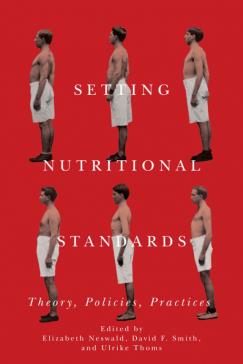Presents historical perspectives on the theory, practices, and policies of nutrition science in Western Europe and the United States from the 1860s to the 1960s.
In the second half of the nineteenth century, ways of thinking about food changed as chemists and physiologists identified nutrients and bodily needs and as urbanization, industrialization, and colonial encounters challenged traditional dietary customs and assumptions. Emerging as a reaction to concerns about industrial and military power, social welfare, and public health, the science of nutrition sought to define the norms and needs of variable human bodies, setting standards for bodies and foods that would enable physicians and politicians to develop nutritional recommendations and food policies for individuals and populations.
Setting Nutritional Standards brings together authors from a variety of disciplines to explore perspectives on the theory, practices, and policies of modern nutrition science from the 1860s to the 1960s. The essays place the new science of nutrition within the changing social landscapes of Western Europe and the United States at the intersection of medicine, policy, social reform agendas, and public health initiatives.

